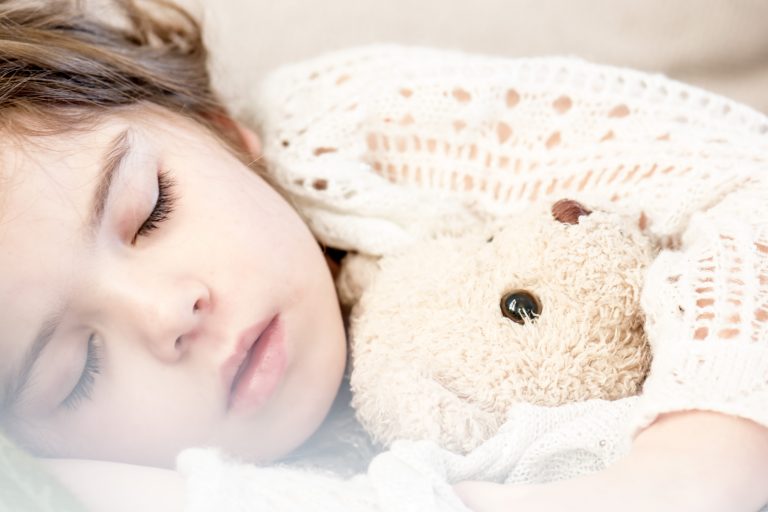
Insomnia
We all experience the odd restless night’s sleep and notice how tired and drained we feel the following day. Usually, we can enjoy a better sleep the next night and catch up on our sleep deficit. For some people, however, sleep becomes a torment – we long for it, desperately seeking that rest, only to find there’s no relief.
Insomnia affects people in a few different ways:
- Waking up too early in the morning.
- Waking up several times in the night.
- Lying awake when first going to bed, taking hours to get to sleep.
- Tired in the daytime but unable to nap.
In a busy world sleep is often considered less important than all the other things we need to do. We want to cram as much as we can into our days and can even feel guilty for having the odd lie-in. But sleep is absolutely essential to maintain our health and feelings of wellbeing and should be high on our list of priorities.
While we are asleep neuro-toxins are flushed out of the brain. We can imagine that this is when the cleaners are busy at work, just like a Molly Maid service, removing all the excess toxins that are produced during our daily mental activities. This process is essential to prevent nerve damage in the brain areas.
It’s recommended that adults should, on average, aim to sleep between 7 and 9 hours per night. Children sleep more, needing anywhere from 9 to 13 hours a night and babies can sleep as much as 17 hours per day.
As reported in the Daily Mail (Tuesday, 10th April 2018), hypnotherapy can be a very effective way to help people restore healthy sleeping patterns. It can calm the whole system down and help to alleviate concerns, anxieties and worries.
Sleep researchers conducted surveys, asking people who slept well what they thought about prior to falling sleep. The universal answer was “nothing”. The same question was asked to insomniacs, and their replies were “everything”. Hypnotherapy helps by reducing stress levels and helping clients to focus on the positive things in life so that sleep comes easily and naturally.
The positive suggestions that are given to the subconscious mind can help to install new behaviour patterns. Once we get into the habit of sleeping better again our natural circadian rhythms take over and restful sleep is restored.
The effects of sleep deprivation
Sleep deprivation can have a wide range of negative effects, affecting our judgement, co-ordination, concentration and reaction times. In fact, it can often leave us feeling as if we are drunk and unable to think properly.
These effects include:
- • Reduced immunity leading to more infections, colds etc.
- • Weight gain
- • Concentration and memory problems
- • Increased risk of diabetes, heart disease and other health problems
- • Inability to cope with stress.
- • Irritability and moodiness
- • Depression and low moods
- • Fatigue
- • Lack of motivation
- • Impaired motor skills, leading to clumsiness and accidents
- • Reduced creativity
- • Difficulty in solving problems and thinking properly
Lack of sleep and weight gain
When we aren’t getting enough sleep, we can crave sugary foods, which give us a quick energy boost. The reason for this is down to two hormones in the body that regulate our feelings of fullness and hunger. The first hormone is called Ghrelin. This stimulates our appetites. The second hormone is Leptin, whose job it is to send signals to the brain to tell us when we are full.
When we aren’t sleeping enough our Ghrelin levels go up, which means we feel hungry and want to eat more food. The Leptin levels decrease, so that we don’t feel satisfied and want to keep eating. The less sleep we have, therefore, the more food you will crave.
Tips to help restore sleep
- • Have a warm bubble bath before bedtime, put a couple of drops of lavender essential oil into the water.
- • Dim the lights in the evening, using a low wattage lamp or even candlelight. This will help your own body’s natural circadian rhythm.
- • Avoid alcohol or caffeine drinks before bedtime.
- • Keep screens out of the bedroom. Monitors and phones etc emit a blue ray light, which promotes wakefulness, just like morning light.
- • Switch bulbs in your bedroom to a red ray light – amber or warm tones, which mimic the sun going down.
- • Avoid eating large meals late at night. If your body is busy digesting food it’s working too hard.
- • Try black-out curtains in your bedroom.
- • Ensure adequate ventilation. Rooms that are hot and stuffy are difficult to sleep in. If you sleep with a small window ajar you will also wake up feeling refreshed.
- • Organise regular bedtimes and morning wake-ups for yourself so your body gets into a routine.
- • If your mind is racing, keep a notebook near the bed. Write down the things you are thinking about and tell yourself firmly that you will deal with them in the morning.
- • Give yourself “worry hour” and get into the habit of ignoring anything on your mind outside of that time frame.
- • Put lavender drops on your pillow case.
- • Do progressive relaxation of your body, starting with the muscles in your head and working down.
If you would like to try hypnotherapy to help you calm your mind and restore wonderful, restful sleep, please get in touch. Vicky Tunaley, tel: 0797 054 0389 or for more information, please visit my website at www.tranceforachange.com